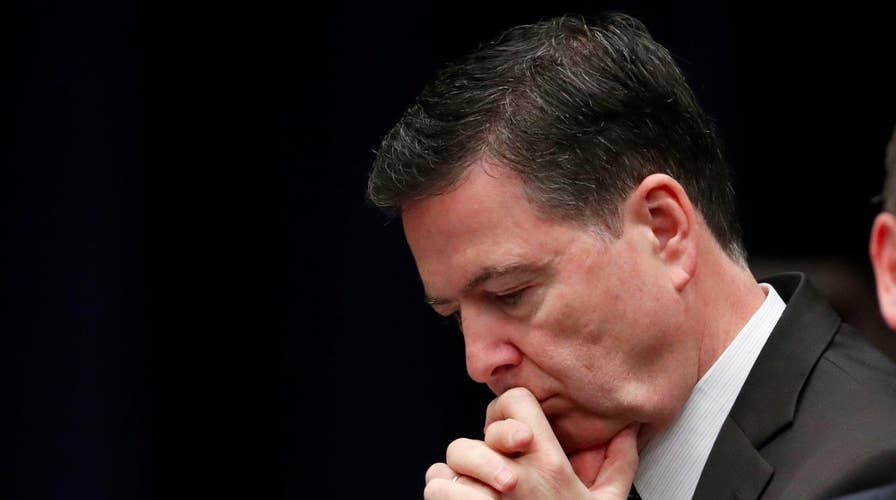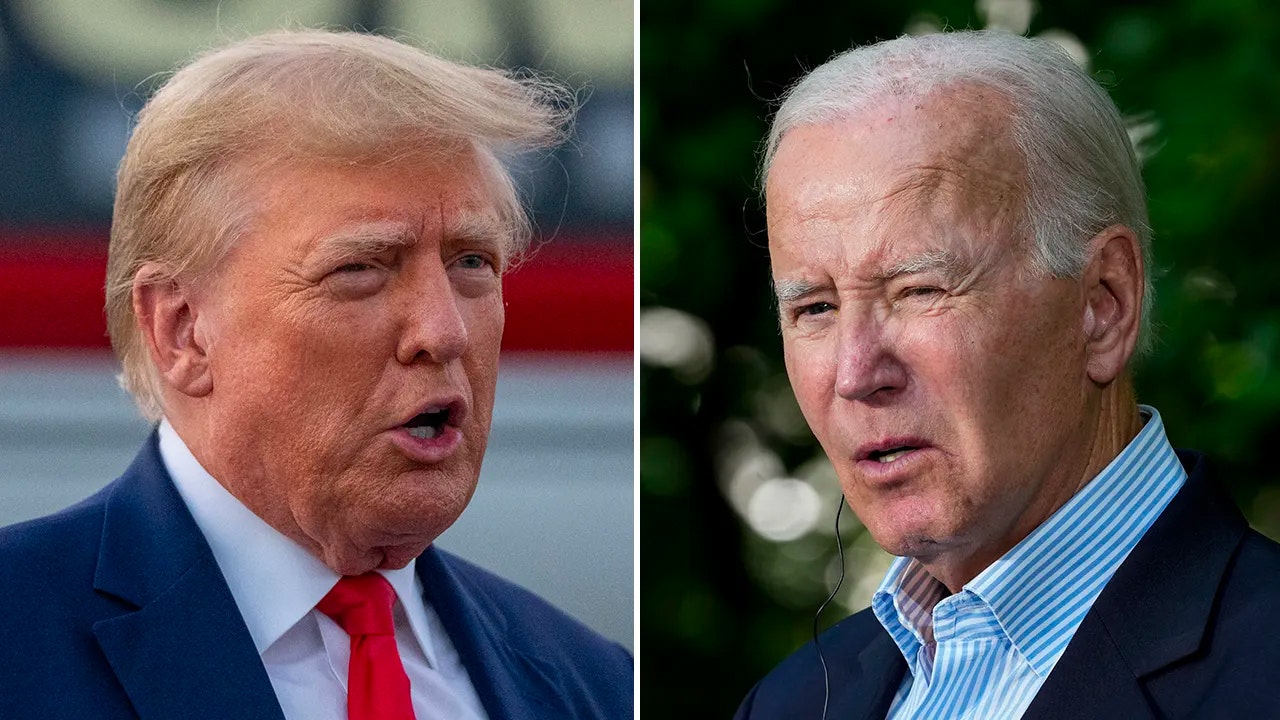Trump Fires Democrats On Federal Trade Commission: The Untold Story
Breaking news in Washington! If you're keeping tabs on the latest political drama, you won’t want to miss this. President Trump recently made waves by firing key Democratic figures from the Federal Trade Commission (FTC). This move has sent shockwaves through the halls of power, sparking heated debates and raising questions about the future of consumer protection in America. So, buckle up, because we’re diving deep into this explosive story.
This isn’t just another political shuffle; it’s a bold move that could reshape the FTC’s priorities and influence. For those unfamiliar with the FTC, it’s the government agency responsible for protecting consumers and ensuring fair competition in the marketplace. Now, with Trump’s decision, the balance of power within the commission is shifting dramatically.
As we dig deeper, you’ll uncover the reasons behind this controversial decision, the potential consequences, and what it means for both Democrats and Republicans moving forward. So, whether you're a politics enthusiast or just someone curious about how these moves affect everyday Americans, you’re in for a wild ride.
Table of Contents
- The Background: Understanding the Federal Trade Commission
- Why Did Trump Fire Democrats on the FTC?
- Key Players: Who’s Involved in This Drama?
- The Impact: What Happens Next?
- How Does This Affect Consumers?
- Partisan Views: What Are Democrats and Republicans Saying?
- Legal Ramifications: Could This Backfire?
- A Historical Context: Has This Happened Before?
- Where Is the FTC Headed Now?
- Conclusion: What Does This Mean for the Future?
The Background: Understanding the Federal Trade Commission
Let’s start with the basics. The Federal Trade Commission (FTC) is a powerful agency that plays a crucial role in regulating business practices and protecting consumers. Established in 1914, the FTC has been at the forefront of enforcing antitrust laws and preventing deceptive trade practices. Its mission? To promote competition and safeguard the public from unfair business tactics.
But here’s the kicker: the FTC is supposed to be bipartisan. Traditionally, it consists of five commissioners, with no more than three from the same political party. This setup ensures a balanced approach to decision-making. However, Trump’s recent actions have thrown this delicate equilibrium into chaos.
Why Is the FTC Important?
The FTC touches almost every aspect of our lives. From cracking down on scam artists to regulating tech giants like Google and Facebook, the agency’s reach is vast. Its decisions can impact everything from data privacy to mergers and acquisitions. With such high stakes, it’s no surprise that changes at the top can send ripples throughout the economy.
Now, let’s break it down:
- The FTC regulates consumer protection laws.
- It investigates antitrust violations and monopolistic behavior.
- It enforces rules around data privacy and cybersecurity.
Why Did Trump Fire Democrats on the FTC?
Alright, so why exactly did Trump pull the trigger on these Democratic commissioners? According to insiders, the President felt that the FTC was veering too far left, prioritizing policies that didn’t align with his administration’s agenda. Specifically, Trump reportedly took issue with the agency’s approach to regulating big tech companies and its stance on consumer data protection.
But here’s where things get interesting. Some argue that this move is less about policy and more about political control. By removing Democratic voices from the FTC, Trump is effectively stacking the deck in favor of Republican interests. Critics are already calling this a power play, while supporters claim it’s necessary to restore balance to the commission.
What Were the Specific Reasons?
While the official reasons haven’t been fully disclosed, here are some potential factors:
- Disagreements over antitrust enforcement against tech giants.
- Concerns about overly restrictive data privacy regulations.
- A desire to implement more business-friendly policies.
Key Players: Who’s Involved in This Drama?
Every good political drama needs its cast of characters, and this one is no exception. Let’s meet the key players in this unfolding saga:
Donald Trump
As the instigator of this shake-up, Trump is center stage. Known for his bold and often controversial moves, the former President has once again made headlines with this decision. But what’s driving him? Is it ideology, politics, or something else entirely?
The Fired Commissioners
On the other side of the equation are the Democratic commissioners who were unceremoniously ousted. These individuals have dedicated their careers to consumer protection and fair trade practices. Their removal has left many questioning the future direction of the FTC.
Here’s a quick rundown:
- Commissioner A: A longtime advocate for consumer rights.
- Commissioner B: Known for her work on data privacy issues.
- Commissioner C: Focused on antitrust enforcement.
The Impact: What Happens Next?
So, what’s the fallout from this decision? The immediate effects are already being felt within the FTC. With key Democratic voices silenced, the commission is likely to shift toward a more conservative agenda. But what does this mean in practice?
For starters, expect to see changes in how the FTC approaches major issues like:
- Regulating big tech companies.
- Enforcing data privacy laws.
- Handling mergers and acquisitions.
But the ripple effects extend beyond the agency itself. Businesses, consumers, and even foreign trade partners may feel the impact of these policy shifts.
How Does This Affect Consumers?
At the end of the day, it’s the everyday American who stands to gain—or lose—the most from these changes. If the FTC becomes more lenient on big businesses, consumers could see fewer protections against deceptive practices. On the flip side, a more business-friendly approach might lead to lower prices and increased innovation.
Here’s what consumers need to watch out for:
- Potential rollbacks on data privacy regulations.
- Weaker enforcement of antitrust laws.
- Changes in how scams and fraud are handled.
Partisan Views: What Are Democrats and Republicans Saying?
Unsurprisingly, this decision has sparked a fierce debate between the two major parties. Democrats are crying foul, accusing Trump of undermining the FTC’s independence. Meanwhile, Republicans are cheering the move, arguing that it will bring much-needed reform to the agency.
Let’s hear from both sides:
- Democrats: "This is a blatant attempt to silence dissenting voices and push through a radical agenda."
- Republicans: "The FTC has been out of control. It’s time to restore balance and focus on what’s best for American businesses."
Legal Ramifications: Could This Backfire?
While Trump’s move may have been politically savvy, it’s not without legal risks. Critics argue that firing commissioners without cause could violate the FTC’s bipartisan structure. If challenged in court, this decision could set a dangerous precedent for future administrations.
Here’s what legal experts are saying:
- The FTC’s structure is designed to ensure independence from political influence.
- Firing commissioners without clear justification could be seen as an abuse of power.
- A legal challenge could drag out for months, creating uncertainty for the agency.
A Historical Context: Has This Happened Before?
To understand the significance of Trump’s actions, it’s worth looking back at history. While presidents have occasionally reshuffled the FTC’s leadership, firing commissioners outright is relatively rare. In fact, the last time something similar happened was during the Nixon administration, when several key figures were removed amid controversy.
Here’s a quick history lesson:
- The FTC was established in 1914 to combat monopolistic practices.
- Over the years, it has evolved to address modern challenges like digital privacy.
- Presidential interference in the FTC’s operations has always been a contentious issue.
Where Is the FTC Headed Now?
Looking ahead, the future of the FTC is uncertain. With a new administration in place, there’s a chance that some of Trump’s changes could be reversed. However, the damage may already be done, especially if the agency’s reputation has been tarnished by these political maneuvers.
What’s next for the FTC?
- A potential shift back toward bipartisan cooperation.
- New leadership appointments to restore balance.
- A renewed focus on consumer protection and fair competition.
Conclusion: What Does This Mean for the Future?
In conclusion, Trump’s decision to fire Democrats on the Federal Trade Commission is a bold move with far-reaching implications. While it may have achieved its immediate goals, the long-term consequences remain to be seen. For consumers, businesses, and policymakers alike, the coming months will be crucial in shaping the FTC’s future direction.
So, what can you do? Stay informed, engage in the conversation, and don’t be afraid to voice your opinions. Whether you agree or disagree with Trump’s actions, one thing is certain: the FTC will continue to play a vital role in shaping the economic landscape of America.
And hey, if you’ve enjoyed this deep dive into the world of politics and consumer protection, don’t forget to share this article with your friends. The more people who understand the stakes, the better off we all are. Thanks for reading, and keep those comments coming!
Person Of Interest In Sudiksha Konanki Case No Longer Under Police Watch: What You Need To Know
5 Things You Need To Know About Flames Vs Rangers Showdown
Why Former Lady Vols Basketball Coach Kellie Harper's Hiring At Missouri Is A Big Deal

Trump, Democrats Spar Over North American Trade Deal WSJ

Trump fires FBI Director Comey Fox News

Trump fires back, says Biden is a ‘true threat to democracy’ Fox News